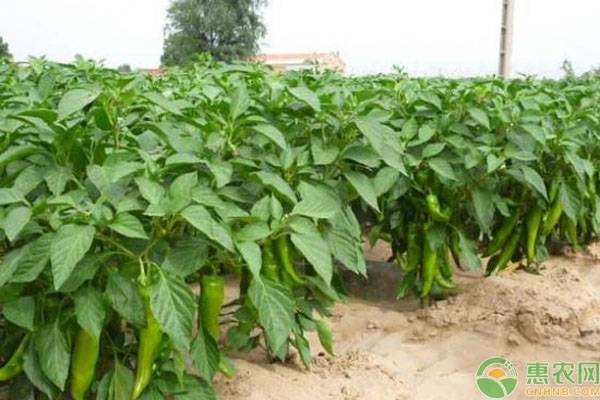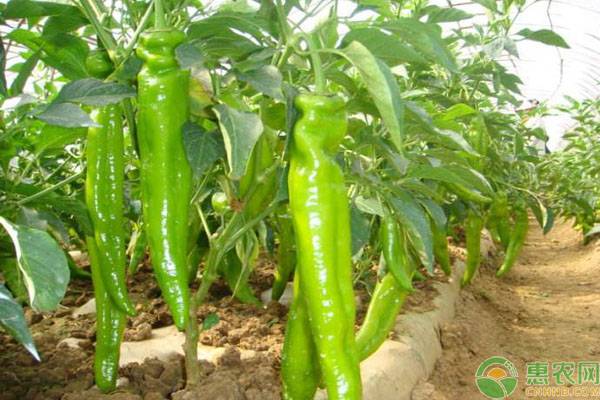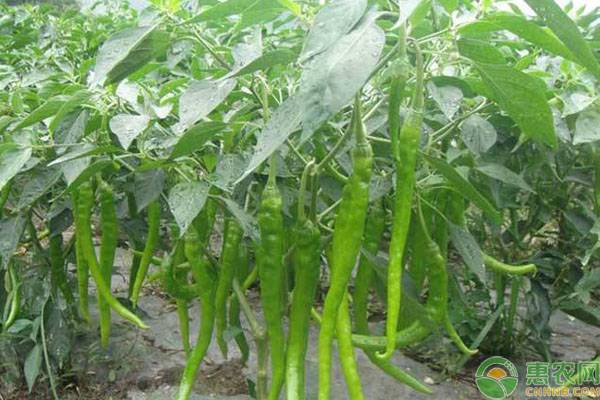Pepper is cultivated in many areas of China. For the growth of pepper, high temperature and high humidity environment is very unfavorable to the development of pepper. It often causes deciduous growth and slow growth of pepper, which causes the yield of pepper to decrease or even shrink. In summer, it is rainy, so how effective pepper cultivation is. Management, let's take a look at the following.

1. Fertilization
Before the arrival of the rainy season, it is necessary to re-apply a chemical fertilizer, applying 25-30 kg of diammonium sulfate or 15-20 kg of urea per mu to prevent deferment in the rainy season, or 5 kg of urea per acre after each heavy rain. When topdressing, the fertilizer should be spread evenly on the ground, and should not be scattered on the leaves to prevent damage.
2, watering
Watering the peppers in summer should be carried out in the early morning, because the morning temperature, temperature and water temperature are relatively low. At this time, watering is not easy to cause damage to the plants. It is strictly forbidden to water the water around noon. The summer weather is sultry. After the rain, it is necessary to implement the pouring garden. After the rain stops, the well water is used for shallow pouring and fast pouring, and the sweltering heat is caused to cause the roots and leaves of the pepper to fall off.

3. Drainage
After heavy rain, it is necessary to drain in time to avoid the formation of stagnant water in the field, so that the rain stops and the water should be cleaned. When the land is prepared, it should be covered with small high ridge or high mulch film to facilitate irrigation and drainage. If the humidity is too large, it is necessary to timely stroke, increase the permeability of the soil, prevent stagnant water, soil hypoxia, resulting in yellowing, defoliation, roots and diseases.
4. Other management
In addition, we must do a good job of cultivating weeds. In the rainy season, we should shallow or artificially pull grass to prevent damage to the roots of large peppers, affecting the absorption capacity and causing disease infection. It is also necessary to do topdressing outside the roots. It can be applied to the surface of the potassium dihydrogen phosphate not only to supplement the nutrition, but also to reduce the body temperature of the plant, accelerate photosynthesis and promote fruit setting. Sometimes there will be disasters. After encountering hail, the injured leaves and fruits should be removed in time to reduce nutrient consumption, promote new shoots, and spray and top dress in time.
5. Pest control
During the hot rainy season, the soil and air humidity are high, which may lead to disease prevalence. Capsicum blight and anthrax can be treated with drugs such as mancozeb, pentazole and prochloraz. Capsicum scab, bacterial wilt, and soft rot can be sprayed with bacteriocin, chlorobromoisocyanuric acid, etc. Capsicum virus disease can be controlled by hydroxy ene morpholinium spray, and pepper mites can be controlled by imidacloprid.

The above is the main point of pepper management in the summer rainy season. At this time, the pepper is in the fruit growth period. In order to effectively ensure the healthy growth of the pepper and the quality of the pepper, the management of this period cannot be treated with sloppyness.
For the wonderful pictures and hot comments on the summer management of peppers, you may be interested in the following recommended contents of Hui Nong. Welcome to read.
Sealing Profiles,Edge Sealing Profiles,Clip On Sealing Profiles,Channel Sealing Profiles
Ningbo Hengchieh Locking Technology Co., Ltd. , https://www.yh-lock.com